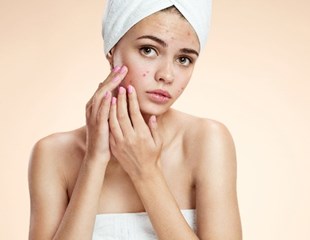Posted 7 June 2021
 The topic of
acne doesn’t come up in everyday conversations that often, but when you suffer
from it, it can be all-consuming and may have a lasting psychological impact.
The topic of
acne doesn’t come up in everyday conversations that often, but when you suffer
from it, it can be all-consuming and may have a lasting psychological impact.
There are acne treatments out there.
There’s
no need to carry on suffering in silence.
A
study showed that 54% of UK adults who experienced acne feel it affected their
self-confidence[1], and 34% didn’t know what
effective treatments there are for it.
The
thing about acne is that while there’s no cure, you can control it with topical
treatments and/or oral medication.[2]
What causes it?
It
can affect you at any point, but 95% of people develop acne aged 11 to 30.[3] Whether you’re going through puberty or you’re an adult,
hormone levels may be the culprit.
Acne
starts when glands produce more sebum (or oil) than normal. Pore linings then
become thicker and dead skin cells aren’t shed properly, causing follicles to
become blocked. With a build-up of oil and bacteria, your skin becomes inflamed
forming blackheads, whiteheads and/or papules (small red bumps), pustules
(pus-filled spots), nodules or cysts.
Women
are more likely to develop acne during adulthood - linked to periods, pregnancy
or Polycystic Ovary Syndrome (PCOS) - but genetics may also play a part.[4]
What type of acne do you have?
The
type of acne you suffer from will determine the best treatment for you. And
remember, acne can show up on your back or chest as well as your face.
Comedonal acne – characterised by small,
non-inflamed bumps.
Mild acne – you’ll notice mainly whiteheads
and/or blackheads with a few papules and pastules.
Moderate acne – you’ll notice lots of
blackheads and whiteheads with many papules and pustules.
Severe acne – is characterised by lots of painful
papules, pustules, nodules or cysts that can lead to scarring. If you do have
severe acne, we recommend getting advice from your GP as topical treatments may
not be suitable.
What’s the best acne treatment?
Once
you’ve determined the type of acne you have, you can pick from one of the
following treatments:
- Differin, a cream or gel with the active ingredient adapalene is a
topical retinoid for comedonal acne. It works by bringing skin turnover under
control and reducing inflammation.[5]
- EpiDuo contains adapalene and benzoyl peroxide to reduce the number
of bacteria in mild acne.
- If you have lots of pustules,
then Duac, a topical antibiotic, is
the best treatment for inflammatory acne.
- For moderate acne, there’s a
combination treatment of EpiDuo and
the oral antibiotic Lymecycline.
Buy your acne treatment
FInd out more
Unfortunately,
there’s no overnight cure with these treatments - some can take up to eight
weeks to begin working, while some may make your acne appear worse before
making it better.
The
most important thing is to buy your treatments from a trusted supplier so you
know that you’re using the most effective treatment for your type of acne and
have someone you trust to ask questions.
Margaret,
our lead pharmacist is on hand during opening hours to give you advice and
support Monday to Friday 9am to 5pm.
Find out more
[1] Acne
Support. Over half of people who have ever had acne feel it has affected their
self-confidence [cited 9/04/21] http://www.acnesupport.org.uk/news/half-people-ever-acne-feel-affected-self-confidence/
[2 ] British
Skin Foundation. What is Acne? [cited 09/04/21] https://knowyourskin.britishskinfoundation.org.uk/condition/acne/
[3] NHS.
Overview Acne [cited 09/04/21] https://www.nhs.uk/conditions/acne/
[4] NHS. Acne
causes [cited 09/04/21] https://www.nhs.uk/conditions/acne/causes/
[5] Differin.
Acne: Get to know the enemy [cited 09/04/21] https://differin.com/learn/what-is-acne
Posted in Men's Health, Womens health